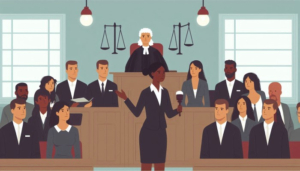
Copyright registration is the process by which authors and creators can formally claim ownership of their intellectual property. This legal mechanism ensures that creators have the exclusive rights to reproduce, distribute, perform, and display their works, as well as to authorize others to do so. While copyright protection is automatically granted upon the creation of a work fixed in a tangible medium, registration provides significant advantages, including the ability to sue for copyright infringement and to claim statutory damages and attorney’s fees.
Importance of Copyright Registration
Registering your copyright is crucial for several reasons. Firstly, it serves as a public record of your ownership, which can be vital in legal disputes. Secondly, registered works are eligible for statutory damages and attorney’s fees in successful litigation, which are not available for unregistered works. Additionally, registration within five years of publication provides prima facie evidence in court regarding the validity of the copyright and the facts stated in the certificate. This can greatly strengthen your legal position if your work is ever infringed upon.
Purpose of the Article
The purpose of this article is to provide a comprehensive guide to copyright registration fees and deadlines. We will cover the different types of fees associated with various kinds of works, the deadlines for initial registration and renewals, and the implications of missing these deadlines. This article aims to help creators understand the financial and procedural aspects of copyright registration, ensuring they can protect their works effectively.
Understanding Copyright Registration Fees
What are Copyright Registration Fees?
Copyright registration fees are charges imposed by the copyright office for the registration of creative works. These fees vary depending on the type of work being registered, the method of filing, and any additional services required. The fees are essential for covering the administrative costs of processing and maintaining copyright registrations.
Standard Fees for Different Types of Works
The standard fees for copyright registration differ based on the category of the work. Here is a breakdown of the typical fees for various types of works:
- Literary Works: Includes novels, poems, articles, and essays. The fee for online registration is generally lower compared to paper filing.
- Visual Arts: Covers paintings, drawings, photographs, and sculptures. Fees can vary based on the complexity and medium of the artwork.
- Musical Works: Applies to songs, compositions, and sheet music. Fees for musical works also vary if they include sound recordings.
- Performing Arts: Encompasses plays, choreographies, and dramatic works. The registration fees can differ if the work is published or unpublished.
- Motion Pictures and Other Audiovisual Works: Includes films, videos, and television programs. The fees are typically higher due to the complexity and length of these works.
Fee Variations Based on Filing Method
The method of filing can significantly affect the cost of copyright registration:
- Online Filing: Generally cheaper and more efficient. The online system allows for quicker processing and lower fees.
- Paper Filing: More expensive due to the additional administrative burden. Paper filing is often used for more complex cases or when electronic filing is not feasible.
Additional Fees for Special Services
Apart from the standard registration fees, there are additional charges for special services:
- Expedited Services: For creators who need to fast-track their registration, there are higher fees associated with expedited processing.
- Renewal Fees: Certain types of works, particularly those registered before 1978, may require renewal registration, which incurs additional fees.
- Corrections and Amendments: If there is a need to correct or amend a registration, fees are charged to process these changes.
Fee Waivers and Reductions
In certain circumstances, fee waivers or reductions may be available:
- For Non-Profit Organizations: Non-profit entities may qualify for reduced fees to support their mission of public service.
- For Individual Creators: Some jurisdictions offer fee reductions for individual creators, especially those who demonstrate financial need.
Deadlines for Copyright Registration
Importance of Timely Registration
Timely registration of copyright is crucial for maximizing legal protection. Registering your work promptly ensures that you can take full advantage of the benefits provided by the law, including the ability to seek statutory damages and attorney’s fees in the event of infringement.
Initial Registration Deadlines
The deadlines for initial registration depend on whether the work is published or unpublished:
- For Unpublished Works: There is no strict deadline for registering unpublished works, but it is advisable to register as soon as the work is created.
- For Published Works: To be eligible for statutory damages and attorney’s fees, published works should ideally be registered within three months of publication.
Renewal Deadlines
Certain types of works, particularly those registered under the old copyright law before 1978, require renewal registration to maintain protection:
- Renewal Process Overview: Renewal registration extends the copyright protection for an additional term. The process involves submitting a renewal application and paying the associated fees.
- Deadlines for Different Types of Works: The renewal deadlines vary based on the type of work and the original registration date. It’s important to adhere to these deadlines to ensure continued protection.
Special Deadlines for Group Registrations
Group registrations allow multiple works to be registered together, which can be cost-effective and efficient:
- For Serial Publications: Newspapers, magazines, and other serials can be registered as a group. The registration must be filed within a specific timeframe after the publication of the last issue in the group.
- For Database and Software: Group registration for updates or versions of databases and software requires adherence to particular deadlines to ensure comprehensive protection.
Consequences of Missing Deadlines
Failing to register your copyright on time can have significant legal and financial consequences:
- Legal Implications: Without timely registration, you lose the right to claim statutory damages and attorney’s fees in infringement lawsuits. This can make enforcement of your rights more challenging and costly.
- Financial Implications: Delayed registration can result in higher costs and missed opportunities for licensing and monetization of your work.
Detailed Breakdown of Copyright Registration Fees
Literary Works
- Books: The fee for registering books varies based on whether they are published or unpublished and the filing method used. Online registration is generally cheaper.
- Articles: Articles, essays, and other shorter literary works also have variable fees. Group registration is available for multiple articles by the same author.
Visual Arts
- Paintings: Registration fees for paintings depend on the filing method and whether the work is part of a series.
- Photographs: Photographers can register individual images or groups of photographs. Fees vary accordingly.
- Sculptures: Sculptural works have specific fees, which can be higher for complex pieces.
Musical Works
- Songs: The registration fee for songs can vary, especially if they include accompanying sound recordings.
- Instrumental Pieces: Instrumental compositions have different fee structures based on their length and complexity.
Performing Arts
- Plays: The fee for registering dramatic works depends on their publication status and filing method.
- Dance Choreographies: Choreographed works have unique registration fees, which may be influenced by the inclusion of audiovisual recordings.
Motion Pictures and Audiovisual Works
- Films: The registration fee for motion pictures is typically higher due to their complexity and length.
- Videos: Shorter videos and other audiovisual works have separate fee structures, often lower than full-length films.
Interactive Works
- Software: Registration fees for software can vary based on whether the work is registered as a single entity or as part of a group.
- Video Games: Video games, being complex and multifaceted, generally have higher registration fees.
Payment Methods and Processes
Online Payment Options
- Credit/Debit Cards: Most online registrations can be paid for using major credit or debit cards.
- Electronic Funds Transfer: Some copyright offices allow payment via electronic funds transfer, providing a secure and efficient option.
Mail Payment Options
- Checks: Payments can be made by check, although this method is slower and subject to postal delays.
- Money Orders: Money orders are another option for mail payments, offering a secure method for sending fees.
International Payment Methods
- Currency Conversion: International creators must consider currency conversion rates when paying fees in a different currency.
- International Money Orders: These provide a reliable method for international payments, ensuring that the correct amount is received by the copyright office.
Common Payment Issues and Solutions
- Payment Failures: Online payment failures can occur due to various reasons, such as incorrect card details or insufficient funds. It’s important to double-check payment information and ensure sufficient funds are available.
- Refund Processes: In cases of overpayment or error, refund processes are available, although they can take time to process.
Case Studies
Case Study 1: Literary Work
- Background: An author seeks to register a novel to secure copyright protection before publishing.
- Registration Process: The author submits an online application, paying the standard fee for literary works.
- Fees and Deadlines: The registration is completed within the recommended three months post-publication to ensure eligibility for statutory damages.
Case Study 2: Visual Art
- Background: An artist wishes to protect a series of paintings before exhibiting them.
- Registration Process: The artist opts for group registration to save on fees and time.
- Fees and Deadlines: The group registration fee is paid online, and the registration is completed promptly.
Case Study 3: Musical Composition
- Background: A composer needs to register a new symphony and accompanying sheet music.
- Registration Process: The composer files both the musical composition and sound recording simultaneously.
- Fees and Deadlines: Separate fees are paid for each element, ensuring comprehensive protection.
Expert Insights
Interview with a Copyright Lawyer
- A copyright lawyer discusses the importance of timely registration and the potential legal benefits and protections it affords.
Advice from a Copyright Office Representative
- A representative provides practical tips on navigating the registration process and highlights common pitfalls to avoid.
Tips from Successful Creators
- Successful authors, artists, and musicians share their experiences with copyright registration, offering valuable insights and advice.
Conclusion
This article has covered the essentials of copyright registration fees and deadlines, emphasizing the importance of timely registration and understanding the associated costs. By breaking down the fees for different types of works and outlining the deadlines for initial registration and renewals, we have provided a comprehensive guide for creators.
Registering your copyright is a critical step in protecting your creative work. By understanding the fees and deadlines involved, you can ensure that your intellectual property is adequately safeguarded, allowing you to focus on what you do best: creating.
FAQs
What is the purpose of copyright registration?
Copyright registration formally establishes your ownership of a creative work, providing legal benefits such as the ability to sue for infringement and claim statutory damages.
How much does it cost to register a copyright?
The cost varies depending on the type of work and the filing method. Online filing is generally cheaper than paper filing, and fees differ for literary works, visual arts, musical compositions, and other categories.
What happens if I miss the registration deadline?
Missing the registration deadline can limit your legal protections, including the ability to claim statutory damages and attorney’s fees in infringement cases.
Can I register multiple works at once?
Yes, group registration is available for certain types of works, such as serial publications and collections of photographs, offering a cost-effective way to protect multiple works.
How do I apply for a fee waiver?
Fee waivers or reductions may be available for non-profit organizations and individual creators who demonstrate financial need. Check with your local copyright office for specific eligibility requirements and application procedures.







